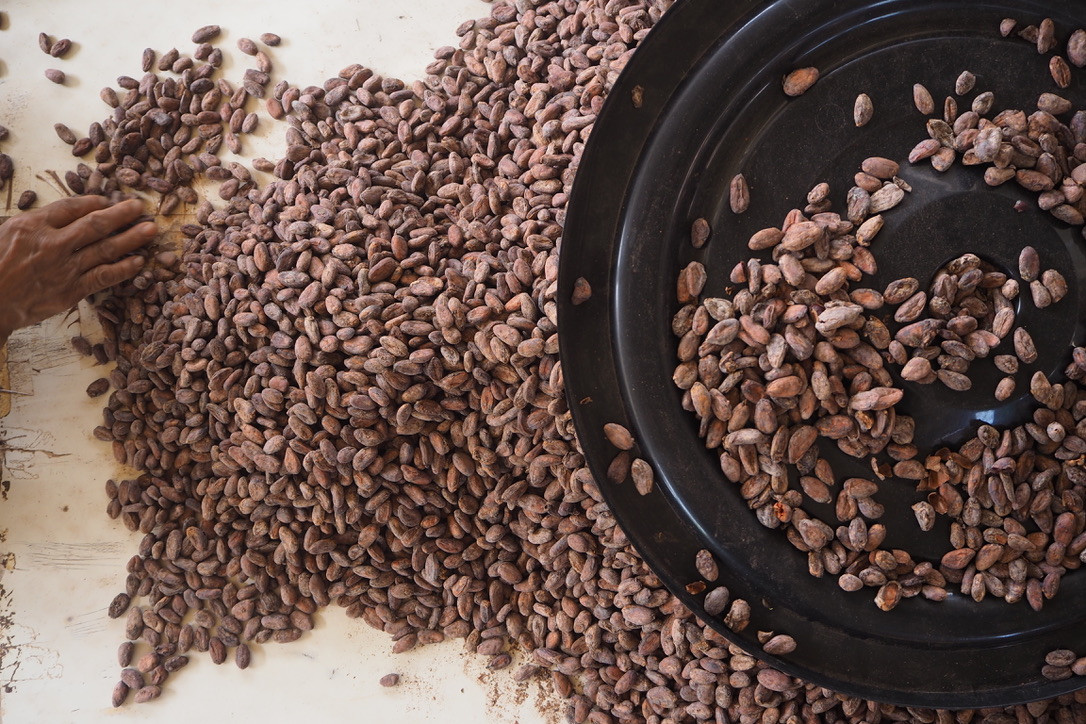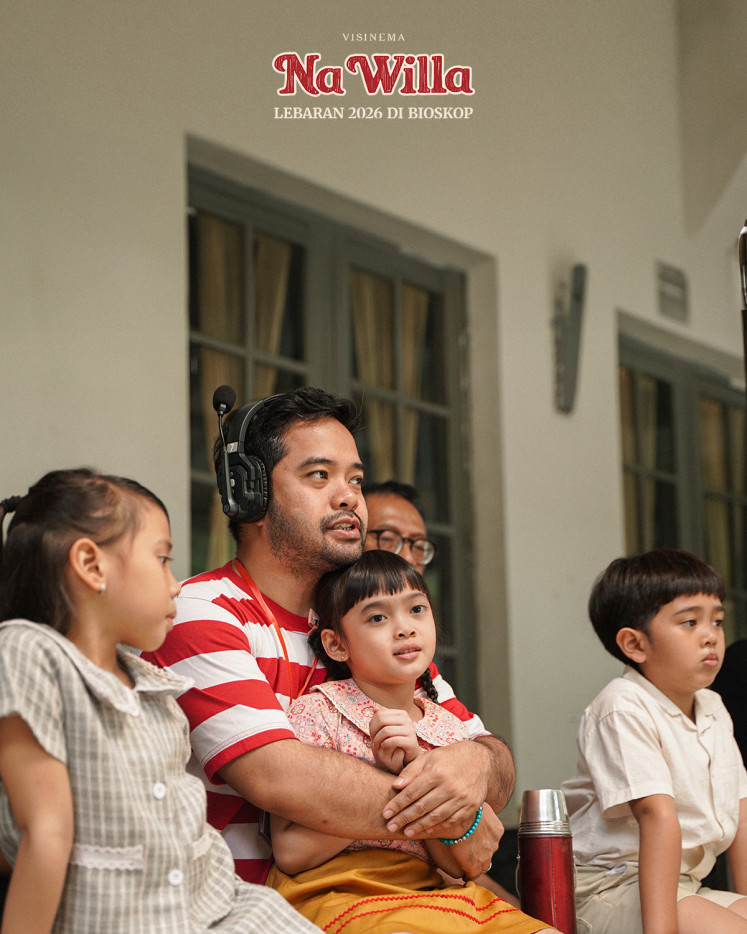Popular Reads
Top Results
Can't find what you're looking for?
View all search resultsPopular Reads
Top Results
Can't find what you're looking for?
View all search resultsBali’s chocolate puts smiles on farmers’ faces
Change text size
Gift Premium Articles
to Anyone
I
n Bali, an island where tourism has been a dominant economic and sociological force for decades, agriculture has increasingly become a forgotten sector.
Consequently, local farmers have to deal with a growing number of challenges to stay relevant.
Agricultural Technology Assessment Agency (BBPT) researcher I Wayan Alit Artha Wiguna has been working on several initiatives to assist those farmers.
Alit, who has been with the agency for more than 30 years, introduced the system of rice intensification (SRI) methods to farmers at Wongaya Betan in Tabanan, Bali, to increase productivity.
Alongside Stephen Lansing, an anthropologist and prominent expert on subak, Alit drafted the academic text that played a critical role in the inclusion of subak on UNESCO's World Heritage List in 2012.
The inclusion prompted local administrations to set several subak as conservation sites, prohibiting the conversion of rice fields in that area into building or tourism facilities.
Alit decided four years ago to make a big leap that would enable him to create more smiles on the faces of local farmers. He invested Rp 600 million (US$42,747) to set up a chocolate factory at his birthplace, the village of Cau in Tabanan, some 35 kilometers west of Denpasar.
“Indonesia is the world's third-largest producer of cacao beans, yet that fact does not translate into smiles across our cacao farmers. Don't they deserve to be happy?” he said.
“There must be something amiss with the way we process our beans,” he added, pointing out how European countries, such as Switzerland and Belgium, had a towering presence in the chocolate industry, despite the fact that all major cocoa plantations were located outside the continent.
Alit then dedicated himself to learning about cocoa and its post-harvest process, particularly how to transform the beans into the delectable chocolate bars.
“We built the factory in the village because our vision involves creating an economic platform for the village to flourish,” Cau Chocolates director Surya Prestya Wiguna said.
He claimed that Cau Chocolates was the only chocolate company on the island fully-owned by Balinese people.
“It is not about provincialism but it's about telling the world that Balinese people can create high-quality chocolate products,”
The factory sources fermented cocoa beans directly from farmers in Tabanan and Jembrana. As a policy, it refuses to purchase from tengkulak (speculators).
“We purchase fermented beans only in an effort to educate farmers on how to process their harvests so they can set higher prices,” Surya said, adding that fermentation would also enhance the flavor.
Cau Chocolates also offers a better price to farmers. Last September, when the national price was Rp 30,000 per kilogram, it bought fermented beans from farmers at Rp 50,000 per kilogram for organic beans and Rp 40,000 for non-organic.
In its first year, the factory processed up to 40 kilograms of beans per day. The amount has since soared to 700 kilograms.
The factory found a loyal partner in the Kerta Semaya Samaniya Cooperative (KSS) in coping with its increasing demand for fermented beans. The KSS is a cooperative of around 600 farmers in 38 subak and in 2017, it produced 55 tons of fermented beans.
“At this time the demand is much higher than what we can supply. Cau Chocolate is our biggest buyer in Bali,” KSS head I Ketut Wiadnyana said.
KSS also exports fermented beans to France and Japan.
KSS member Ni Ketut Sri Astuti said fermenting cocoa beans was a six-day process.
“It is time-consuming but it commands a much higher price,”
A native of Nusa Sari village in Melaya, Jembrana, she said cocoa had become her family’s primary source of income.
Cau Chocolates processes the fermented beans into nibs, powder, butter and bars. Their products are available at Ngurah Rai International Airport, shops across Kuta, Denpasar, and Ubud as well as select stores in Singapore and Australia.
The factory opens its doors to curious visitors wishing to witness first-hand the magical transformation of the fermented beans into various chocolate delicacies.
“It is a wonderful experience watching the whole process and learning the company’s robust support to local farmers,” a German visitor, Evelyn Knopwerth, said.











